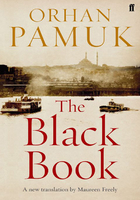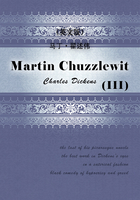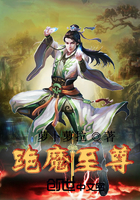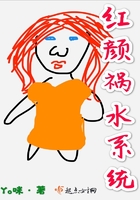I am Black's maternal uncle, his enishte, but others also call me "Enishte." There was a time when Black's mother encouraged him to address me as "Enishte Effendi," and later, not only Black, but everyone began referring to me that way. Thirty years ago, after we'd moved to the dark and humid street shaded by chestnut and linden trees beyond the Aksaray district, Black began to make frequent visits to our house. That was our residence before this one. If I were away on summer campaign with Mahmut Pasha, I'd return in the autumn to discover that Black and his mother had taken refuge in our home. Black's mother, may she rest in peace, was the older sister of my dearly departed wife. There were times on winter evenings I'd come home to find my wife and his mother embracing and tearfully consoling each other. Black's father, who could never maintain his teaching posts at the remote little religious schools where he taught, was ill-tempered, angry and had a weakness for drink. Black was six years old at the time; he'd cry when his mother cried, quiet down when his mother fell silent and regarded me, his Enishte, with apprehension.
It pleases me to see him before me now, a determined, mature and respectful nephew. The respect he shows me, the care with which he kisses my hand and presses it to his forehead, the way, for example, he said, "Purely for red," when he presented me with the Mongol inkpot as a gift, and his polite and demure habit of sitting before me with his knees mindfully together; all of this not only announces that he is the sensible grown man he aspires to be, but it reminds me that I am indeed the venerable elder I aspire to be.
He shares a likeness with his father, whom I've seen once or twice: He's tall and thin, and makes slightly nervous yet becoming gestures with his arms and hands. His custom of placing his hands on his knees or of staring deeply and intently into my eyes as if to say, "I understand, I'm listening to you with reverence" when I tell him something of import, or the way he nods his head with a subtle rhythm matching the measure of my words are all quite appropriate. Now that I've reached this age, I know that true respect arises not from the heart, but from discrete rules and deference.
During the years Black's mother brought him frequently to our house under every pretense because she anticipated a future for him here, I understood that books pleased him, and this brought us together. As those in the house used to put it, he would serve as my "apprentice." I explained to him how miniaturists in Shiraz had created a new style by raising the horizon line clear to the top of the border, and that while everyone depicted Mejnun in a wretched state in the desert, crazed with love for his Leyla, the great master Bihzad was better able to convey Mejnun's loneliness by portraying him walking among groups of women cooking, attempting to ignite logs by blowing on them or walking between tents. I remarked how absurd it was that most of the illustrators who depicted the moment when Hüsrev spied the naked Shirin bathing in a lake at midnight had whimsically colored the lovers' horses and clothes without having read Nizami's poem, my point being that a miniaturist who took up a brush without the care and diligence to read the text he was illustrating was motivated by nothing more than greed.
I'm delighted now to see that Black has acquired another essential virtue: To avoid disappointment in art, one mustn't treat it as a career. Despite whatever great artistic sense and talent a man might possess, he ought to seek money and power elsewhere to avoid forsaking his art when he fails to receive proper compensation for his gifts and efforts.
Black recounted how he'd met one by one all of the master illustrators and calligraphers of Tabriz by making books for pashas, wealthy Istanbulites and patrons in the provinces. All these artists, I learned, were impoverished and overcome by the futility of their lot. Not only in Tabriz, but in Mashhad and Aleppo, many miniaturists had abandoned working on books and begun making odd single-leaf pictures—curiosities that would please European travelers—even obscene drawings. Rumor has it that the illuminated manuscript Shah Abbas presented to Our Sultan during the Tabriz peace treaty has already been taken apart so its pages could be used for another book. Supposedly, the Emperor of Hindustan, Akbar, was throwing so much money around for a large new book that the most gifted illustrators of Tabriz and Kazvin quit what they were doing and flocked to his palace.
As he told me all of this, he pleasantly interjected other stories as well; for example, he described with a smile the entertaining story of a Mehdi forgery or the frenzy that erupted among the Uzbeks when the idiot prince sent to them by the Safavids as a hostage to peace fell feverishly ill and dropped dead within three days. Even so, I could tell from the shadow that fell across his face that the dilemma to which neither of us referred, but which troubled us both, had yet to be resolved.
Naturally, Black, like every young man who frequented our house or heard what others had to say about us, or who knew about my beautiful daughter, Shekure, from hearsay, had fallen in love with her. Perhaps I didn't consider it dangerous enough to warrant my attention back then, but everyone—including many who'd never laid eyes on her—fell in love with my daughter, that belle of belles. Black's affliction was the overwhelming passion of an illfated youth who had free access to our house, who was accepted and well liked in our home and who had the opportunity actually to see Shekure. He did not bury his love, as I hoped he would, but made the mistake of revealing his extreme passion to my daughter.
As a result, he was forced to quit our house completely.
I assumed that Black now also knew how three years after he'd left Istanbul, my daughter married a spahi cavalryman, at the height of her loveliness, and that this soldier, having fathered two boys but still bereft of any common sense, had gone off on a campaign never to return again. No one had heard from the cavalryman in four years. I gathered he was aware of this, not only because such gossip spreads fast in Istanbul, but because during the silences that passed between us, I felt he'd learned the whole story long ago, judging by the way he looked into my eyes. Even at this moment, as he casts an eye at the Book of the Soul, which stands open on the folding X-shaped reading stand, I know he's listening for the sounds of her children running through the house; I know he's aware that my daughter has returned here to her father's house with her two sons.
I've neglected to mention the new house I had built in Black's absence. Most likely, Black, like any young fellow who'd set his mind to becoming a man of wealth and prestige, considered it quite discourteous to broach such a subject. Still, when we entered, I told him on the staircase that the second floor was always less humid, and that moving upstairs had served to ease the pains in my joints. When I said "the second floor," I felt oddly embarrassed, but let me tell you: Men with much less money than I, even simple spahi cavalrymen with tiny military fiefs, will soon be able to build two-story houses.
We were in the room with the blue door that I used as the painting workshop in winter, and I sensed that Black was aware of Shekure's presence in the adjacent room. I at once disclosed to him the matter that inspired the letter I'd sent to Tabriz, inviting him to Istanbul.
"Just as you did in concert with the calligraphers and miniaturists of Tabriz, I, too, have been preparing an illustrated manuscript," I said. "My client is, in fact, His Excellency Our Sultan, the Foundation of the World. Because this book is a secret, Our Sultan has disbursed payment to me under cover of the Head Treasurer. And I have come to an understanding with each of the most talented and accomplished artists of Our Sultan's atelier. I have been in the process of commissioning one of them to illustrate a dog, another a tree, a third I've charged with making border designs and clouds on the horizon, and yet another is responsible for the horses. I wanted the things I depicted to represent Our Sultan's entire world, just as in the paintings of the Venetian masters. But unlike the Venetians, my work would not merely depict material objects, but naturally the inner riches, the joys and fears of the realm over which Our Sultan rules. If I ended up including the picture of a gold coin, it was to belittle money; I included Death and Satan because we fear them. I don't know what the rumors are about. I wanted the immortality of a tree, the weariness of a horse and the vulgarity of a dog to represent His Excellency Our Sultan and His worldly realm. I also wanted my cadre of illustrators, nicknamed 'Stork,' 'Olive,' 'Elegant' and 'Butterfly,' to select subjects of their own choosing. On even the coldest, most forbidding winter evenings, one of my Sultan's illustrators would secretly visit to show me what he'd prepared for the book.
"What kind of pictures were we making? Why were we illustrating them in that way? I can't really answer you at present. Not because I'm withholding a secret from you, and not because I won't eventually tell you. It's as though I myself don't quite know what the pictures mean. I do, however, know what kind of paintings they ought to be."
Four months after I sent my letter, I heard from the barber located on the street where we used to live that Black had returned to Istanbul, and, in turn, I invited him to our house. I was fully aware that my story bore a promise of both sorrow and bliss that would bind the two of us together.
"Every picture serves to tell a story," I said. "The miniaturist, in order to beautify the manuscript we read, depicts the most vital scenes: the first time lovers lay eyes on each other; the hero Rüstem cutting off the head of a devilish monster; Rüstem's grief when he realizes that the stranger he's killed is his son; the lovecrazed Mejnun as he roams a desolate and wild Nature among lions, tigers, stags and jackals; the anguish of Alexander, who, having come to the forest before a battle to divine its outcome from the birds, witnesses a great falcon tear apart his woodcock. Our eyes, fatigued from reading these tales, rest upon the pictures. If there's something within the text that our intellect and imagination are at pains to conjure, the illustration comes at once to our aid. The images are the story's blossoming in color. But painting without its accompanying story is an impossibility.
"Or so I used to think," I added, as if regretfully. "But this is indeed quite possible. Two years ago I traveled once again to Venice as the Sultan's ambassador. I observed at length the portraits that the Venetian masters had made. I did so without knowing to which scene and story the pictures belonged, and I struggled to extract the story from the image. One day, I came across a painting hanging on a palazzo wall and was dumbfounded.
"More than anything, the image was of an individual, somebody like myself. It was an infidel, of course, not one of us. As I stared at him, though, I felt as if I resembled him. Yet he didn't resemble me at all. He had a full round face that seemed to lack cheekbones, and moreover, he had no trace of my marvelous chin. Though he didn't look anything like me, as I gazed upon the picture, for some reason, my heart fluttered as if it were my own portrait.
"I learned from the Venetian gentleman who was giving me a tour through his palazzo that the portrait was of a friend, a nobleman like himself. He had included whatever was significant in his life in his portrait: In the background landscape visible from the open window there was a farm, a village and a blending of color which made a realistic-looking forest. Resting on the table before the nobleman were a clock, books, Time, Evil, Life, a calligraphy pen, a map, a compass, boxes containing gold coins, bric-a-brac, odds and ends, inscrutable yet distinguishable things that were probably included in many pictures, shadows of jinns and the Devil and also, the picture of the man's stunningly beautiful daughter as she stood beside her father.
"What was the narrative that this representation was meant to embellish and complete? As I regarded the work, I slowly sensed that the underlying tale was the picture itself. The painting wasn't the extension of a story at all, it was something in its own right.
"I never forgot the painting that bewildered me so. I left the palazzo, returned to the house where I was staying as a guest and pondered the picture the entire night. I, too, wanted to be portrayed in this manner. But, no, that wasn't appropriate, it was Our Sultan who ought to be thus portrayed! Our Sultan ought to be rendered along with everything He owned, with the things that represented and constituted His realm. I settled on the notion that a manuscript could be illustrated according to this idea.
"The Venetian virtuoso had made the nobleman's picture in such a way that you would immediately know which particular nobleman it was. If you'd never seen that man, if they told you to pick him out of a crowd of a thousand others, you'd be able to select the correct man with the help of that portrait. The Venetian masters had discovered painting techniques with which they could distinguish any one man from another—without relying on his outfit or medals, just by the distinctive shape of his face. This was the essence of 'portraiture.'
"If your face were depicted in this fashion only once, no one would ever be able to forget you, and if you were far away, someone who laid eyes on your portrait would feel your presence as if you were actually nearby. Those who had never seen you alive, even years after your death, could come face-to-face with you as if you were standing before them."
We remained silent for a long time. A chilling light the color of the iciness outside filtered through the upper part of the small hallway window facing the street; this was the window whose lower shutters were never opened, which I'd recently paned over with a piece of cloth dipped in beeswax.
"There was a miniaturist," I said. "He would come here just like the other artists for the sake of Our Sultan's secret book, and we would work together till dawn. He did the best of the gilding. That unfortunate Elegant Effendi, he left here one night never to arrive at home. I'm afraid they might have done him in, that poor master gilder of mine."















